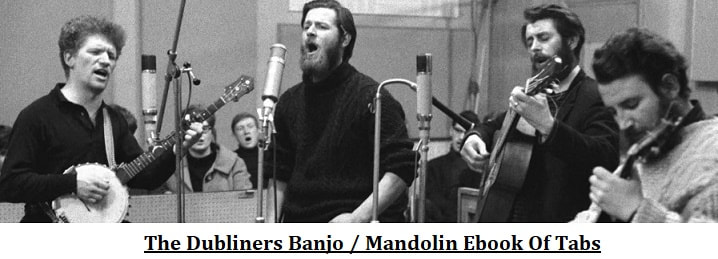Down Down Sheet Music By Status Quo
Down Down Sheet Music And Mandolin Tab By Status Quo In D Major.
'Down Down' by Status Quo: A Reflection of the Social and Political Climate of the 1970s
Introduction
Music has always been a powerful tool for expressing social commentary and reflecting the political climate of a certain time period. One such song that embodies this notion is 'Down Down' by British rock band Status Quo. Released in 1974, the song became an instant hit and remains a staple in the band's repertoire to this day. However, beyond its catchy tune and memorable lyrics, 'Down Down' holds a deeper meaning that reflects the social and political issues of the 1970s. This thesis aims to delve into the context behind the creation of 'Down Down' and analyze its significance as a reflection of the times.
Origins of 'Down Down'
'Down Down' was written and composed by Status Quo's lead singer and guitarist Francis Rossi, along with bandmate Bob Young. The song was recorded and released as a single in 1974, and it quickly rose to the top of the charts in the UK, Australia, and New Zealand. The success of the song caught the attention of the music industry and solidified Status Quo's position as one of the leading rock bands of the era.
Social Commentary in the Lyrics
At first glance, 'Down Down' may seem like a simple, upbeat rock song about dancing and having a good time. However, a closer look at the lyrics reveals a deeper meaning that reflects the social issues of the 1970s. The opening lines, 'Get down deeper and down / Down down deeper and down,' can be interpreted as a call to dig deeper and unravel the underlying problems in society. This notion is further reinforced in the chorus, where the lyrics 'Down down deeper and down / Get down deeper and down' are repeated, emphasizing the need to address these issues.
Status Quo was known for their rebellious and anti-establishment attitude, and this is evident in the lyrics of 'Down Down.' In the second verse, the lyrics 'Get your feet back on the ground / Put your hand on your heart / Lift your head up high / And scream out loud,' can be seen as a call to action for individuals to stand up for their beliefs and challenge the status quo. This sentiment is also echoed in the bridge of the song, where the lyrics 'You gotta sing with the band / You gotta move when you can' encourage listeners to join in the fight for change and not be afraid to speak their minds.
Political Climate of the 1970s
The 1970s was a tumultuous decade, marked by political and social upheaval. In the UK, this period was characterized by economic struggles, widespread strikes, and political unrest. The government was facing backlash for their handling of social issues such as unemployment, inflation, and immigration. The working-class population was particularly affected, with many feeling disillusioned and marginalized.
Against this backdrop, 'Down Down' emerged as an anthem for the working class. The lyrics spoke to the frustration and discontent felt by many during this time. The call to 'get down deeper and down' can be interpreted as a cry for the government to address the root causes of these problems, rather than simply glossing over them. The lyrics also served as a reminder to the working class that they should not be complacent and must continue to fight for their rights and beliefs.
Impact and Legacy
'Down Down' remains one of Status Quo's most iconic songs, and its impact on the social and political climate of the 1970s cannot be overstated. The song's success and popularity brought attention to the issues faced by the working class and gave a voice to their struggles. It also solidified Status Quo's reputation as a band that was not afraid to speak out against the establishment and fight for change.
Conclusion
In conclusion, 'Down Down' by Status Quo is not just a rock song, but a powerful reflection of the social and political climate of the 1970s. Its lyrics served as a call to action for individuals to stand up for their beliefs and challenge the status quo. The song's impact and legacy continue to be felt, making it a timeless piece of social commentary that remains relevant even in today's world.
Introduction
Music has always been a powerful tool for expressing social commentary and reflecting the political climate of a certain time period. One such song that embodies this notion is 'Down Down' by British rock band Status Quo. Released in 1974, the song became an instant hit and remains a staple in the band's repertoire to this day. However, beyond its catchy tune and memorable lyrics, 'Down Down' holds a deeper meaning that reflects the social and political issues of the 1970s. This thesis aims to delve into the context behind the creation of 'Down Down' and analyze its significance as a reflection of the times.
Origins of 'Down Down'
'Down Down' was written and composed by Status Quo's lead singer and guitarist Francis Rossi, along with bandmate Bob Young. The song was recorded and released as a single in 1974, and it quickly rose to the top of the charts in the UK, Australia, and New Zealand. The success of the song caught the attention of the music industry and solidified Status Quo's position as one of the leading rock bands of the era.
Social Commentary in the Lyrics
At first glance, 'Down Down' may seem like a simple, upbeat rock song about dancing and having a good time. However, a closer look at the lyrics reveals a deeper meaning that reflects the social issues of the 1970s. The opening lines, 'Get down deeper and down / Down down deeper and down,' can be interpreted as a call to dig deeper and unravel the underlying problems in society. This notion is further reinforced in the chorus, where the lyrics 'Down down deeper and down / Get down deeper and down' are repeated, emphasizing the need to address these issues.
Status Quo was known for their rebellious and anti-establishment attitude, and this is evident in the lyrics of 'Down Down.' In the second verse, the lyrics 'Get your feet back on the ground / Put your hand on your heart / Lift your head up high / And scream out loud,' can be seen as a call to action for individuals to stand up for their beliefs and challenge the status quo. This sentiment is also echoed in the bridge of the song, where the lyrics 'You gotta sing with the band / You gotta move when you can' encourage listeners to join in the fight for change and not be afraid to speak their minds.
Political Climate of the 1970s
The 1970s was a tumultuous decade, marked by political and social upheaval. In the UK, this period was characterized by economic struggles, widespread strikes, and political unrest. The government was facing backlash for their handling of social issues such as unemployment, inflation, and immigration. The working-class population was particularly affected, with many feeling disillusioned and marginalized.
Against this backdrop, 'Down Down' emerged as an anthem for the working class. The lyrics spoke to the frustration and discontent felt by many during this time. The call to 'get down deeper and down' can be interpreted as a cry for the government to address the root causes of these problems, rather than simply glossing over them. The lyrics also served as a reminder to the working class that they should not be complacent and must continue to fight for their rights and beliefs.
Impact and Legacy
'Down Down' remains one of Status Quo's most iconic songs, and its impact on the social and political climate of the 1970s cannot be overstated. The song's success and popularity brought attention to the issues faced by the working class and gave a voice to their struggles. It also solidified Status Quo's reputation as a band that was not afraid to speak out against the establishment and fight for change.
Conclusion
In conclusion, 'Down Down' by Status Quo is not just a rock song, but a powerful reflection of the social and political climate of the 1970s. Its lyrics served as a call to action for individuals to stand up for their beliefs and challenge the status quo. The song's impact and legacy continue to be felt, making it a timeless piece of social commentary that remains relevant even in today's world.







